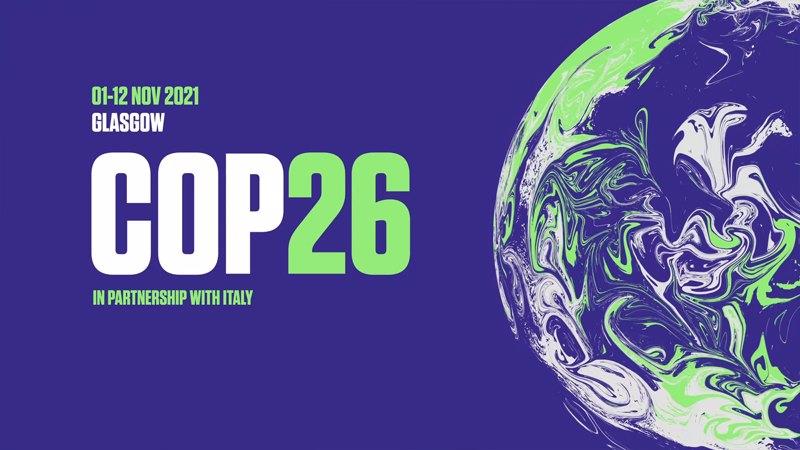
What does it all mean? An environment update special
by Phil Heaton & Steve Brown 31 Oct 2021 07:27 UTC

COP26 © Phil Heaton and Steve Brown
As political leaders, scientists, environmentalists and business leaders convene in Glasgow, Scotland for COP26 we cruisers are deeply concerned that they make decisions to protect our world...
...and enable future generations of cruisers to follow in our wakes, but what is it all about?
First, COP26 stands for the 26th Conference of Parties to the United Nations Framework Convention on Climate Change which came into effect in 1994 and is one of the Rio Conventions (the others being concerned with biological diversity and combatting desertification). The "parties" are the 196 countries that ratified the treaty plus the European Union. The ultimate objective of the Convention is to stabilize greenhouse gas concentrations "at a level that would prevent dangerous anthropogenic (human-induced) interference with the climate system." It states that "such a level should be achieved within a time-frame sufficient to allow ecosystems to adapt naturally to climate change, to ensure that food production is not threatened, and to enable economic development to proceed in a sustainable manner."
As a lead up to COP26, the Intergovernmental Panel on Climate Change (IPCC) reported in August 2021 that climate change is widespread, rapid, and intensifying, and some trends are now irreversible, at least during the present time frame. However, there is still time to limit climate change, IPCC experts say. Strong and sustained reductions in emissions of carbon dioxide (CO2) and other greenhouse gases, could quickly make air quality better, and in 20 to 30 years global temperatures could stabilize.
Nevertheless, there continues to be a very high risk that the goal of limiting global warming to well below 2 degrees Celsius and preferably to 1.5 degrees, and achieving a climate neutral world by mid-century, will not be achieved without radical action. This goal is in the Paris Agreement which is a legally binding international treaty on climate change and was adopted by 196 Parties at COP 21 in Paris, in 2015 and entered into force in November 2016.
Achieving this goal is not just down to governments though. All organisations and individuals should examine how they can reduce their Carbon Footprint which is the amount of greenhouse gases (CO2) emitted. To this end, the OCC is seeking volunteers to examine the Club's carbon footprint and look at how it can be reduced. If you would like to help with this, please email
Carbon removal tackles already-emitted CO2 from the atmosphere by nature-based solutions and technological solutions.Countries and organisations are therefore expected to make plans and take action to be Carbon Neutral in the short-term and achieve Net Zero by 2050. Carbon Neutral means purchasing carbon reduction credits equivalent to emissions released, without the need for emissions reductions to have taken place and, importantly, on its own will not restrict global warming to 1.5 deg C. Whereas Net Zero means reducing emissions in line with latest climate science, and carbon removal.
Nature-based solutions include Blue Carbon - expanding ocean and coastal ecosystems that sequester CO2 from the environment. These include mangroves, seagrass meadows and saltmarshes. Globally, saltmarshes and seagrass draw down and store between them 235-450 million tonnes of carbon a year: almost half the emissions from the entire global transport sector. It is estimated that that saltmarsh and seagrass habitats fix and store carbon at two to four times the rate of mature tropical forests. So, all cruisers should welcome the increased protection for Posidonia seagrass in anchorages throughout the Mediterranean, for example, and take great care when anchoring around seagrass elsewhere (see OCC October e-bulletin on eco-anchoring).
Technological solutions include Bioenergy with carbon capture and storage (BECCS) - burning plant biomass for energy, and then trapping the CO2 that is produced; and, Direct Air Capture (DAC) - using chemical reactions to separate and capture CO2 from the air around us. The CO2 that is captured by these technological solutions then needs to be stored. Geological storage (pumping of CO2 into rock formations underground) and mineral carbonation (reacting CO2 with compounds such as magnesium oxide and calcium oxide to create stable rock compounds) are both seen as feasible options for CO2 storage. Other important actions are reforestation and planting trees where there has been no previous tree cover; and, soil carbon sequestration, including regenerative agriculture and Biochar which involves growing plants that absorb CO2, heating them in the absence of oxygen to make charcoal, and adding this to the soil.
There is much to be positive about but time is short and the actions required are immense, so COP26 is critical to protecting our world, the oceans and cruising as we have known it.
This article has been provided by the courtesy of Ocean Cruising Club.